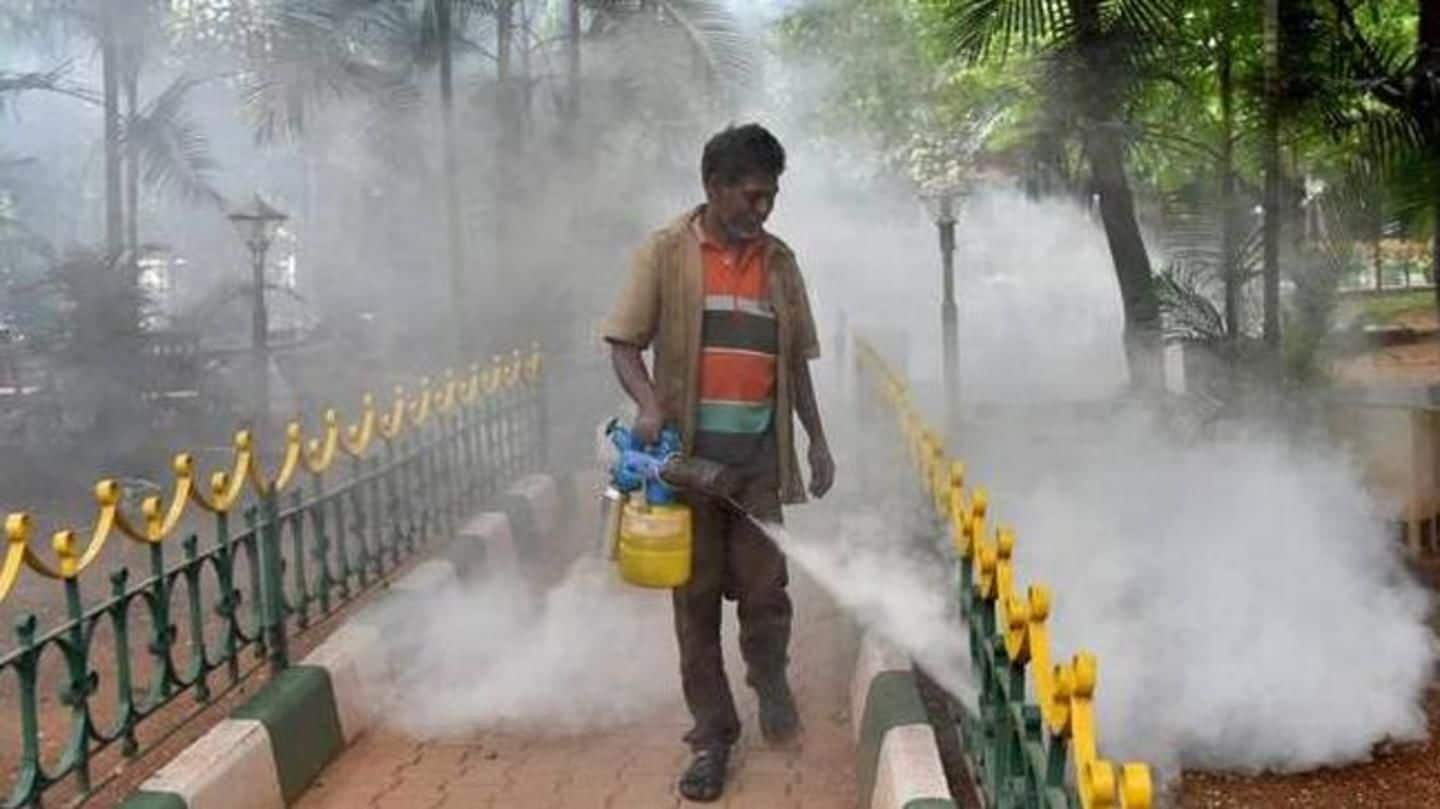
With 40 cases, malaria spreading faster in Delhi than dengue-chikungunya
What's the story
Malaria is turning out to be a greater cause of concern for Delhi than dengue and chikungunya. According to a municipal report released yesterday, 40 cases of malaria have been recorded this season, compared to 28 of dengue and 14 of chikungunya. Eleven of these were reported last week itself. According to the WHO, India accounts for 75% of all malaria cases in Southeast Asia.
About
Malaria spreads through the female Anopheles mosquito
Malaria spreads through the Plasmodium parasite carried by the female Anopheles mosquito. After a human is bitten by an infected mosquito, the parasite lays dormant in the liver and keeps multiplying for days, before being released into the bloodstream. Common symptoms include cold, fever, headaches, respiratory difficulties and abnormal bleeding. Nearly five people out of every 1,00,000 malaria-diagnosed patients in India died in 2016.
Delhi
4 new dengue cases last week, none of chikungunya
In Delhi, two malaria cases were reported in February, one each in April and March, 17 in May, and 19 in June. Comparatively, only four new dengue cases and none of chikungunya were registered last week, proving malaria is spreading faster. However, "it isn't unusual for malaria cases to be reported in larger number than dengue, as both have different carriers," a doctor at a government hospital said.
Data
The actual numbers might be much worse
Experts opine these numbers might be an underestimation. "The corporations report cases from select government hospitals and private facilities that send relevant data. Many patients who are treated at primary levels, by private physicians or at nursing homes, aren't covered at all," one said.
HC
Delhi HC lashes out at authorities for inaction
Despite the situation, authorities haven't done enough to prevent more spreading. Mosquito-inbreeding has been detected at over 38,000 households this season; 44,020 legal notices have been served for violations. In April, the HC lashed out at the government and municipalities for their lackadaisical attitude. Last month, L-G Anil Baijal directed officials to spread messages, especially in vernacular languages, to sensitize the masses.
Advisory
SDMC releases advisory for different sections
In an advisory, the South Delhi Municipal Corporation Commissioner advised citizens to buy air coolers designed by the National Centre for Disease Control (NCDC), which prevent mosquito-breeding, instead of the conventional ones. Educational institutions and offices were urged to help keep their areas clean, and heads of offices were instructed to nominate nodal officers to ensure compliance with the advisory.
Precautions
You can do your bit to keep yourself safe
You can take steps to reduce your chances of contracting malaria. To prevent bites, use mosquito nets or insect repellant while sleeping, and wear full-sleeved clothes and long pants. When not using water coolers, make sure they are dry; mosquitoes often breed in stagnant water. Clean your house regularly to detect breeding of mosquito larvae. Keep doors and windows closed and screened with gauze.